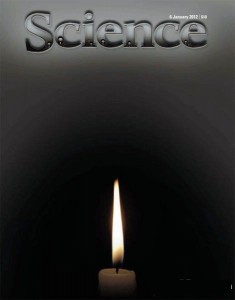DIY-IAP: What is Your Definition of a Successful Scientist?
-
-
slice.mit.edu
Filed Under
Recommended
 Late last year, Science Magazine invited the “next generation of scientists” to answer the questions, “How will the practice of science change in your lifetime?” and “What will improve and what new challenges will emerge?” The queries kicked off Science Magazine’s new section, NextGen VOICES, and highlighted the need for young scientific voices to address the critical challenges in an increasingly resource-limited world. The top 50 responses were posted in the January 2012 edition, which included four MIT graduate students.
Late last year, Science Magazine invited the “next generation of scientists” to answer the questions, “How will the practice of science change in your lifetime?” and “What will improve and what new challenges will emerge?” The queries kicked off Science Magazine’s new section, NextGen VOICES, and highlighted the need for young scientific voices to address the critical challenges in an increasingly resource-limited world. The top 50 responses were posted in the January 2012 edition, which included four MIT graduate students.
Dianne Kamfonik (Civil and Environmental Engineering): “Science, more than ever, is being bottlenecked by politics. For example, scientists have not only shown that climate change is happening, but they have also already developed many ways to combat it.”Now, it's your turn. The second NextGen VOICES survey asks, “What is your definition of a successful scientist?” and “How has this definition changed between your mentor’s generation and your own?” The question is open to any young scientists and the deadline is February 17. Click here to post your answers (250 words or less).Andrew David Warren (Health Sciences and Technology): “Should researchers be afraid of being replaced? Not for a long time—scientists will continue to provide the creativity. Computers will simply help us identify what we do (and don't) know.”
Vyas Ramanan (Health Sciences and Technology): “As robotic labor overtakes humans in efficiency across many industries and at many points along the value chain, new types of jobs must be created to ensure stable employment for the working-age population.”
Yiftach Nagar (Sloan School of Management): “Increasing stratification will cause many talented people to give up academic careers for work in rising multinational corporations, which will fund applicative research. As larger data sets become owned by companies, free dissemination and open scrutiny of findings will be challenged.”






